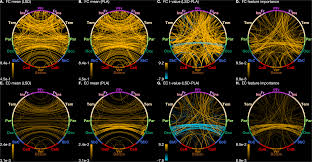LSD’s Impact on Cognitive Functioning: Exploring the Science Behind the Psychedelic
As the global resurgence of psychedelic research continues, LSD (lysergic acid diethylamide) is drawing renewed attention—not for its hallucinogenic experiences, but for its potential impact on cognitive functioning. Once associated almost exclusively with counterculture movements, LSD is now being studied for how it may influence memory, attention, creativity, problem-solving, and mental flexibility. LSD’s Impact on Cognitive Functioning
In countries like New Zealand, academic institutions such as the University of Auckland are at the forefront of researching LSD microdosing and its effects on cognition. With mental health challenges on the rise, particularly among younger and high-performance populations, understanding how psychedelics affect brain function is more relevant than ever. LSD’s Impact on Cognitive Functioning
How LSD Interacts with the Brain
LSD primarily acts on the serotonin 2A receptor (5-HT2A), influencing neural communication and triggering changes in perception, cognition, and mood. This receptor plays a key role in regulating sensory perception, mood balance, and executive functioning.
Recent brain imaging studies reveal that LSD increases global brain connectivity, meaning more parts of the brain communicate with each other simultaneously. This hyper-connected state may explain why LSD is linked to enhanced pattern recognition, divergent thinking, and cognitive flexibility—all crucial aspects of higher-level cognitive processing. LSD’s Impact on Cognitive Functioning
Cognitive Benefits Reported from LSD Use
While traditional high-dose psychedelic experiences can disrupt normal functioning in the short term, microdosing LSD—taking very small, sub-hallucinogenic amounts—has shown promise for enhancing several areas of cognitive performance. Anecdotal reports and preliminary studies suggest potential benefits such as:
In New Zealand, this topic is being closely studied as part of the growing field of psychedelic-assisted therapy and neuroscience.
- Improved focus and sustained attention
- Greater mental clarity
- Enhanced memory recall
- Increased problem-solving skills
- Faster information processing
- Improved task-switching and cognitive flexibility
What the Research Says
A 2022 study published by the University of Auckland explored LSD microdosing’s effects on creativity and cognitive functioning in healthy adults. The researchers found that participants who microdosed LSD scored higher on divergent thinking tasks (which measure creative idea generation) and demonstrated improved performance in problem-solving. LSD’s Impact on Cognitive Functioning
Another global study published in Frontiers in Psychology indicated that microdosing psychedelics could improve convergent thinking (the ability to focus and solve well-defined problems) as well as divergent thinking. Both forms of thinking are critical for learning, innovation, and complex decision-making. LSD’s Impact on Cognitive Functioning
However, not all results are entirely positive. Some studies have noted that while cognitive functioning improves in some areas, mood volatility and increased neuroticism may also occur, particularly without proper supervision or dosing protocols. LSD’s Impact on Cognitive Functioning
Caution and Legal Considerations
Despite promising early data, LSD is still classified as a Class A controlled substance in New Zealand, making personal use illegal and potentially dangerous outside a research setting. Microdosing and full-dose studies must be conducted under strict ethical and medical oversight.
Moreover, the long-term cognitive effects of repeated LSD use—especially outside of clinical settings—are not yet fully understood. For this reason, public health experts caution against self-administered microdosing without proper guidance.
Looking Ahead: Future of Cognitive Enhancement with Psychedelics
As neuroscience and psychedelic research expand, the question of how to safely and effectively harness LSD for cognitive enhancement is gaining momentum. New Zealand is playing a pivotal role in this movement, with local research contributing to a deeper understanding of how LSD affects the brain’s learning, memory, and decision-making functions. LSD’s Impact on Cognitive Functioning
If clinical results continue to show positive cognitive outcomes, LSD could one day be considered not only a treatment for mood disorders but also a tool for cognitive optimization—used to improve performance, creativity, and mental flexibility in both clinical and high-functioning populations. LSD’s Impact on Cognitive Functioning
LSD’s impact on cognitive functioning is a complex and fascinating topic, bridging the fields of psychology, neuroscience, and pharmacology. With New Zealand contributing to this important research, the future of psychedelics as cognitive enhancers is being shaped right now—thoughtfully, scientifically, and with care.

